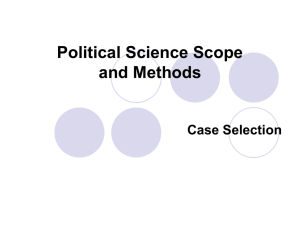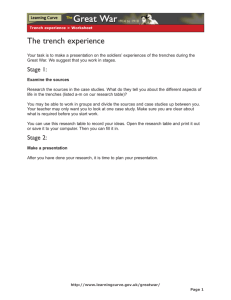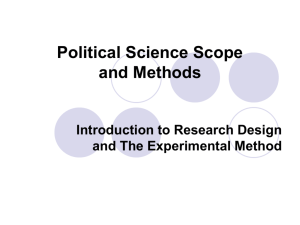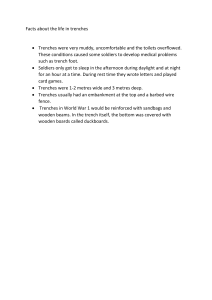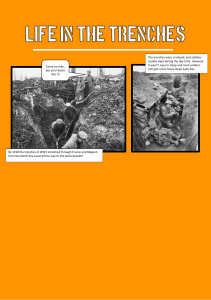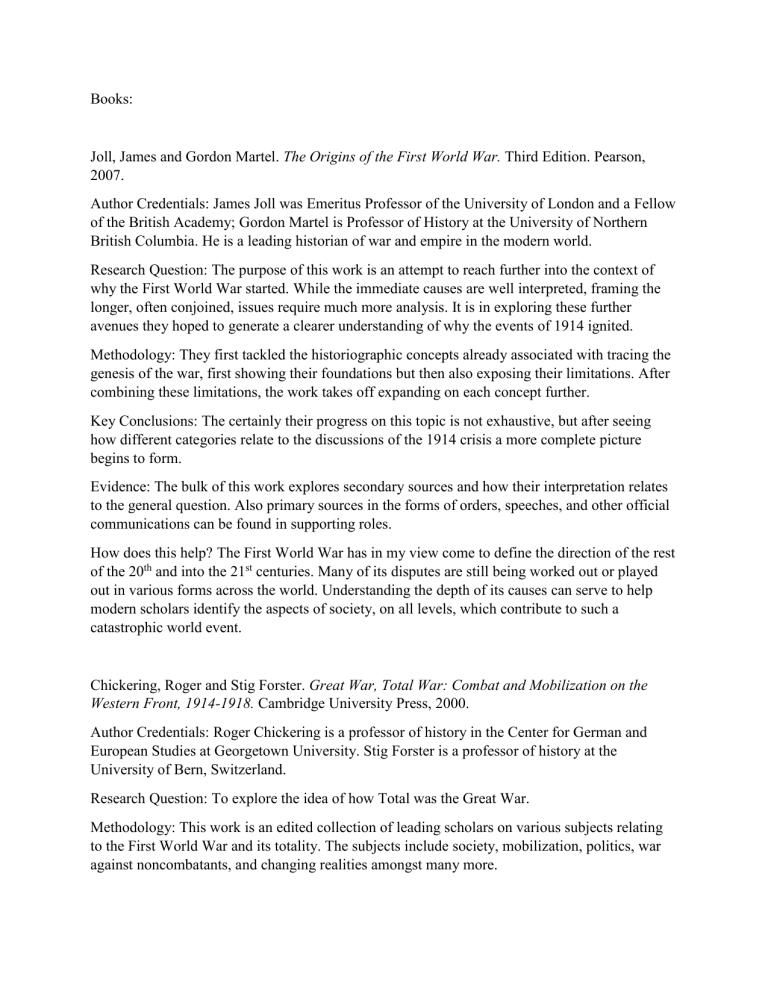
Books: Joll, James and Gordon Martel. The Origins of the First World War. Third Edition. Pearson, 2007. Author Credentials: James Joll was Emeritus Professor of the University of London and a Fellow of the British Academy; Gordon Martel is Professor of History at the University of Northern British Columbia. He is a leading historian of war and empire in the modern world. Research Question: The purpose of this work is an attempt to reach further into the context of why the First World War started. While the immediate causes are well interpreted, framing the longer, often conjoined, issues require much more analysis. It is in exploring these further avenues they hoped to generate a clearer understanding of why the events of 1914 ignited. Methodology: They first tackled the historiographic concepts already associated with tracing the genesis of the war, first showing their foundations but then also exposing their limitations. After combining these limitations, the work takes off expanding on each concept further. Key Conclusions: The certainly their progress on this topic is not exhaustive, but after seeing how different categories relate to the discussions of the 1914 crisis a more complete picture begins to form. Evidence: The bulk of this work explores secondary sources and how their interpretation relates to the general question. Also primary sources in the forms of orders, speeches, and other official communications can be found in supporting roles. How does this help? The First World War has in my view come to define the direction of the rest of the 20th and into the 21st centuries. Many of its disputes are still being worked out or played out in various forms across the world. Understanding the depth of its causes can serve to help modern scholars identify the aspects of society, on all levels, which contribute to such a catastrophic world event. Chickering, Roger and Stig Forster. Great War, Total War: Combat and Mobilization on the Western Front, 1914-1918. Cambridge University Press, 2000. Author Credentials: Roger Chickering is a professor of history in the Center for German and European Studies at Georgetown University. Stig Forster is a professor of history at the University of Bern, Switzerland. Research Question: To explore the idea of how Total was the Great War. Methodology: This work is an edited collection of leading scholars on various subjects relating to the First World War and its totality. The subjects include society, mobilization, politics, war against noncombatants, and changing realities amongst many more. Key Conclusions: The contributors agree insofar as they identify a number of significant tendances that lean towards Total War, however, they also agree that World War 1 was not a Total War not could it have been. Evidence: Each contributor’s section is supported with a wide variety of primary sources from which they present their argument of the totality of the war. How does this help? There is no question that the First World War marks a distinct change where the world in all aspects shifted from “old” to “new.” The experience and the direction of the conflict are composite of these changes. Articles: Kaiser, David E. "Germany and the origins of the First World War." The Journal of Modern History 55, no. 3 (1983): 442-474. Author Credentials: an American historian whose published works have covered a broad range of topics, from European warfare to American League baseball. He was a Professor in the Strategy and Policy Department of the United States Naval War College from 1990 until 2012 and has taught at Carnegie Mellon, Williams College, and Harvard University. Research Question: The standard interpretation with post war historians is that Germany is the party responsible for bringing on the First World War through both direct and proxy methods. Methodology: Kaiser used the foundation of Fritz Fischer’s work Griff nach der Weltmacht, which he identified as being the most influential in the ongoing interpretation. Through this he compared other interpretations and focused realities that the contest and in some cases support Ficher’s notion. Key Conclusions: Germany’s responsibility for generating the war are not as concrete as Fischer claimed, and can be seen as in line or contributing along with other major imperial players in the decades leading up to the conflict. Evidence: Kaiser uses both historiography and primary sources to take on the established main reasons for Germany perceived fault. How does this help? The complexities of the causes of the First World War are deep. Even so the loss of the Germans during the First and Second world in conjunction with the latter’s ideology placed the German narrative in an unfavorable light. This work serves to try and rebalance that notion so that there is a clearer view. Van Evera, Stephen. "The cult of the offensive and the origins of the First World War." International security (1984): 58-107. Author Credentials: Stephen William Van Evera is a professor of Political Science at the Massachusetts Institute of Technology, specializing in international relations. His research includes U.S. foreign and national security policy as well as causes and prevention of war. He is a member of the Council on Foreign Relations. Research Question: The Cult of the Offensive was the principal cause of the First World War. Methodology: Using historiographic interpretations and the aspects of the tactical and strategic portions Van Evera provided constructed examples of how the notion of the offensive springboarded and drove the First World War. Key Conclusions: Van Evera believes through is cited examples and construct of the arguments that the Cult of the Offensives was the most influential component to driving and direction the First World War in terms of cause, goals, and outcome. Evidence: Van Evera’s evidence is based on how these the concepts associated with the Cult of the Offensive applied to the evolution of the war. How does this help? While I do not entirely agree with the scope of this argument, I do think it shows an abstract attempt at framing the difficult question of “why” when it comes to digesting the horror and magnitude of the war. Primary Sources: Both letters from soldiers which express the very human experience of the war. Richard Frederick, Hull, 19 June 1915, France. Born: 4 June 1892, Joined GWR: 25 July 1908, Regiment: 1/6 Seaforth Highlanders, 1st Highland Infantry Brigade, Regiment number: 2161, Rank: Lance Corporal, Died: 1974 Transcript Dear Gerald Many thanks for letter which was somewhat a surprise to me. No the news was quite fresh as I do not hear from anybody in the office. We have just come from the trenches where we were for seven days and had a most awful time. We were three days in the Reserve and put in the firing line where we took part in an attack and were also under a very heavy bombardment. I am sorry to say we had many casualties thirty five killed and one hundred and thirty eight wounded and I can assure you it was an experience I shall never forget. Anyhow Williams, Kemball and myself came out quite safely. I have seen Frost out here, of course his battalion (8th Argyll & Sutherland Highlanders) are in the same brigade also, as a matter of fact, they were in the firing line the night we came out. I received a letter while I was in the trenches from Mr Slater. Yes, I heard about Chamberlain, jolly sad Letters from the First World War, 1915 Trenches 3 http://www.nationalarchives.gov.uk/education/ was it not, if you do hear from Dick James you might pass any news on to me… Shall be glad to hear from you. I could write more, only am a wee bit tired after seven days in trenches. I am yours sincerely, Fred Hull. P.S. Of course you know my address. Remember me to all I know. Rudolf Binding, letter (April, 1915) I have not written to you for a long time, but I have thought of you all the more as a silent creditor. But when one owes letters one suffers from them, so to speak, at the same time. It is, indeed, not so simple a matter to write from the war, really from the war; and what you read as Field Post letters in the papers usually have their origin in the lack of understanding that does not allow a man to get hold of the war, to breathe it in although he is living in the midst of it. The further I penetrate its true inwardness the more I see the hopelessness of making it comprehensive for those who only understand life in the terms of peacetime, and apply these same ideas to war in spite of themselves. They only think that they understand it. It is as if fishes living in water would have a clear conception of what living in the air is like. When one is hauled out on to dry land and dies in the air, then he will know something about it. So it is with the war. Feeling deeply about it, one becomes less able to talk about it every day. Not because one understands it less each day, but because one grasps it better. But it is a silent teacher, and he who learns becomes silent too.
